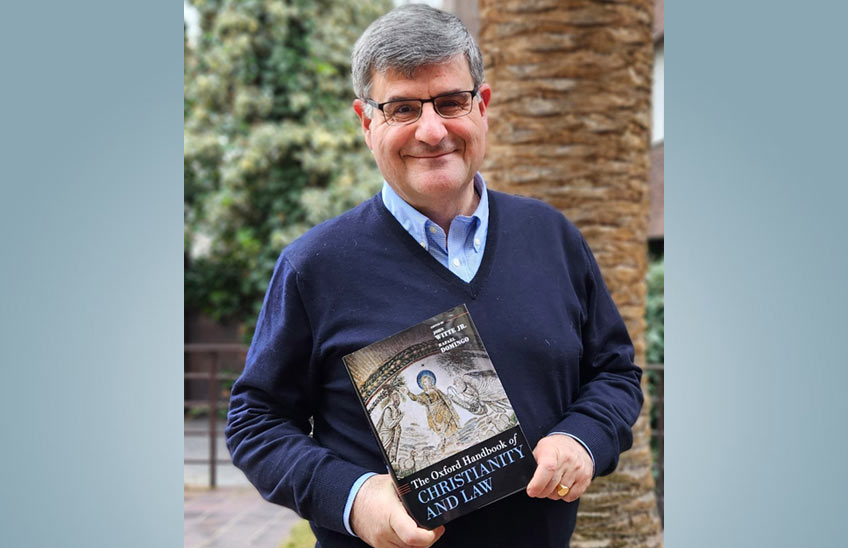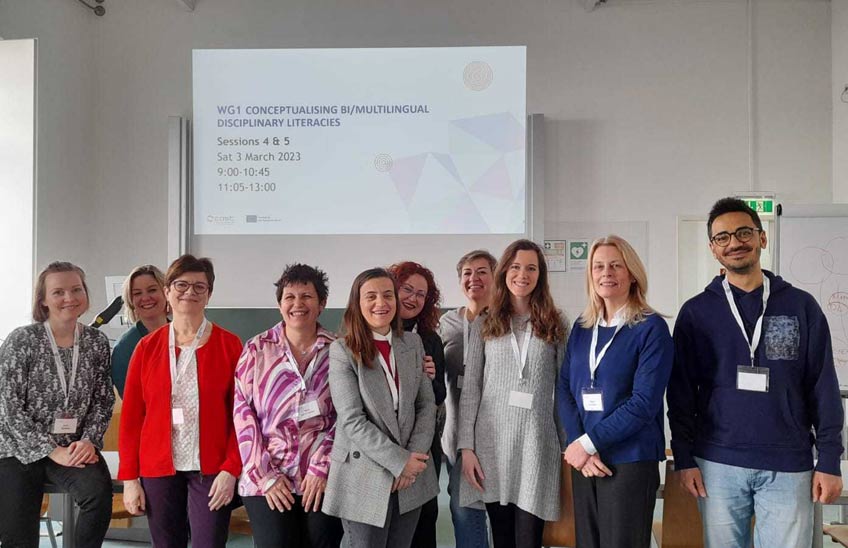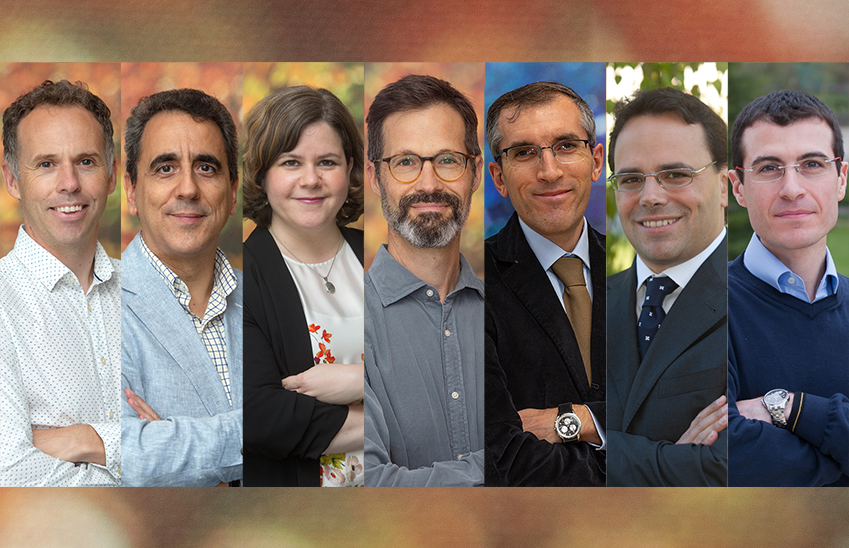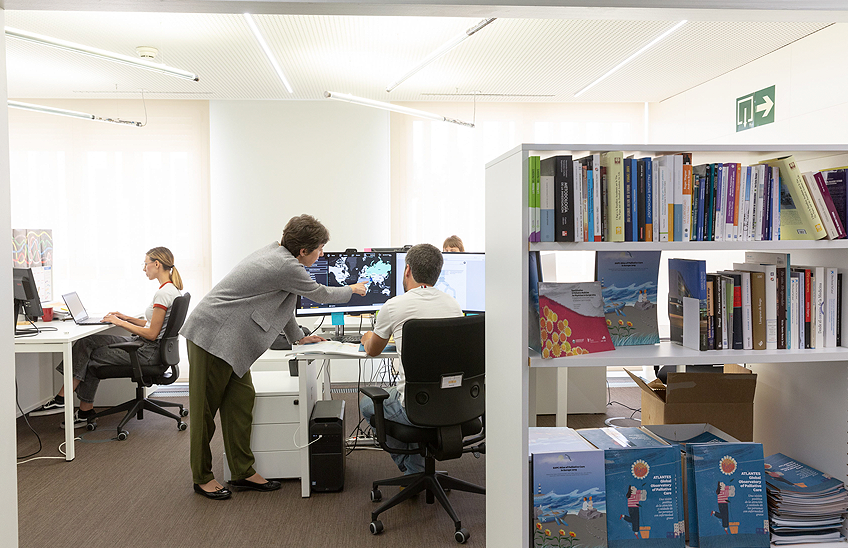20221205_ICS_recasens-patino
An album brings to light works in Spanish by Carlos Patiño, a historical vestige of how the king and his court were entertained in the Golden Age.
Albert Recasens, researcher of the University and director of La Grande Chapelle, presents the musicological recovery of profane songs and sacred carols by Philip IV's favorite musician.
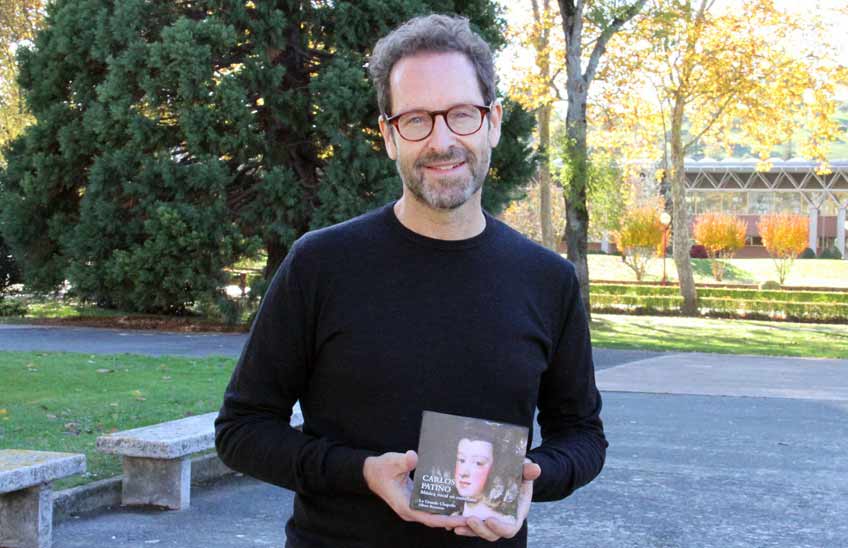
PhotoNataliaRouzaut
/Albert Recasens
05 | 12 | 2022
A recording edition brings to light unpublished works on Spanish by Carlos Patiño (1600-1675), chapel master of Philip IV, so appreciated by the king that he never allowed him to retire. The recovery has run to position of the director and musicologist Albert Recasens, who has researched the works in the Institute for Culture and Society (ICS) of the University of Navarra and has recorded them with his ensemble La Grande Chapelle.
The album continues the work recovery of Patiño's work begun with the CD Música sacra para la corte (Lauda, 2021), which included solemn religious compositions for the great court ceremonies. "In addition to the production board member in Latin, Patiño cultivated several musical genres in language Castilian, written to liven up court festivities or for devotion in the Royal Chapel," explains Recasens.
He specifies that this album brings together pieces in small format, generally four voices with basso continuo, "characterized by the rhythmic richness and the intimate relationship with the poetic text". He points out that not only financial aid to deepen in Patiño's work and to "give a complete vision of the magnitude of his genius", but also "brings us closer to the lesser known music of the Golden Age of Hispanic arts and letters".
This repertoire, as he tells us, was conceived for very different contexts. In the first place, the so-called tonos humanos, profane songs with pastoral or amorous themes written for the palatine festivities. Dedications to historical figures such as Queen Isabella of Bourbon, Queen Mariana or the Infanta Maria Teresa have been identified. "These are unique sound documents, as they tell us what music the royal family and their courtly entourage listened to for entertainment, from the Count Duke of Olivares to Velázquez and Calderón," says the musicologist.
The second block of the repertoire is made up of religious works in Spanish in the form of the villancico, "understood as the most cultivated poetic-musical genre in the ecclesiastical sphere". He mentions that these works were performed in processions or in acts of Eucharistic devotion in the Royal Chapel.
Revolution of Spanish Chamber Music board member
The director of La Grande Chapelle points out that the disc makes it clear that the great revolution in Spanish chamber music board member did not take place in the generation after Patiño, as is usually believed. "This composer, trained in the cathedral tradition of the Renaissance, was a visionary; he assimilated the baroque language and poured his creativity into small-format works. In them he was able to express the feelings and emotions of poetry," he argues.
For the recovery work, Recasens has reviewed the inventory of Patiño's work, since there is no published systematic catalog, and for this he has had to track down archives and libraries where works in language romance of this baroque master are preserved. Most of the secular works come from the Library Services Nacional de España, the Library Services de Catalunya and The Hispanic Society of America. He has also consulted copies kept since the 17th century in the monastery of El Escorial and in the cathedrals of Segovia, Salamanca, Burgos, Valladolid, Zaragoza, Canet de Mar and Jaca, among others.
The CD Carlos Patiño: Música board member at Spanish (Lauda) is part of the CSIC Musica Poetica record collection. It has been edited with the support of sponsorship of committee Superior de Investigaciones Científicas (CSIC) and the Consejería de Cultura y Turismo de la Comunidad de Madrid. The album was recorded at the Monastery of Santo Domingo el Real in Toledo, from September 29 to October 1, 2021. The presentation to the media will take place next December 13. In January 2023, a virtual seminar will be held at the University of Navarra.


